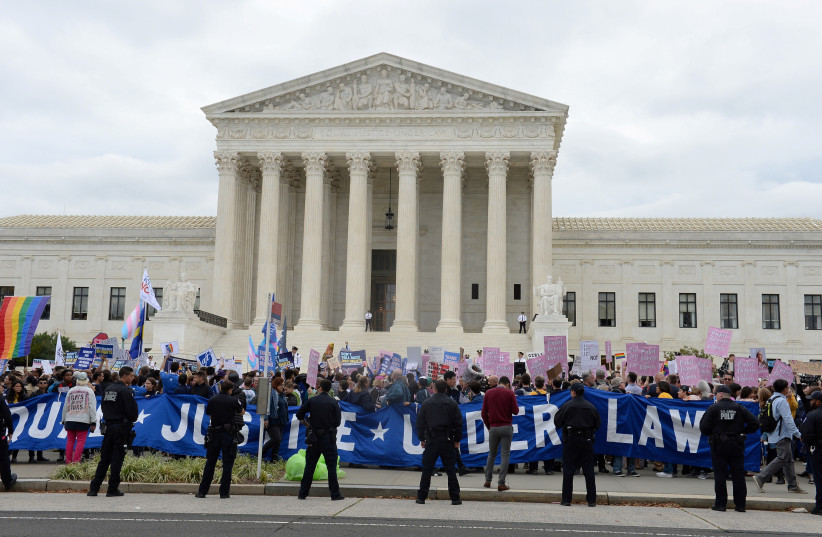In the wake of several high-profile rulings touching on issues such as affirmative action, LGBTQ+ rights, and student loans, the US Supreme Court is experiencing a notable decline in favorability among the American public, according to a recent Pew Research Center survey.
According to the survey, the share of Americans expressing a favorable opinion of the Supreme Court has plummeted to its lowest point since polling on the matter began in 1987.
The survey reveals that only 44% of Americans now hold a favorable view of the court, while a slim majority of 54% express an unfavorable opinion. This marks a decline of 26 percentage points since 2020 and the first time in decades that negative views have outweighed positive ones.
The partisan divide is stark, with just 24% of Democrats and Democratic-leaning independents viewing the Supreme Court favorably, a decline of 7 percentage points since April and the lowest rating for the court among Democrats in over three decades.
A big swing in Democrat views on the court
Prior to recent controversial rulings, nearly two-thirds of Democrats had a favorable impression of the court. On the other hand, Republicans are significantly more likely to view the court favorably, with 68% holding a positive opinion, and their views have shown little change in recent years.

Perceptions of the court's ideology have also shifted, with 50% of Americans now seeing it as conservative, 40% as "middle of the road," and only 7% describing it as liberal.
The shareof Americans viewing the court as conservative has risen by 20 points since 2020, while Democrats are far more likely than Republicans to perceive the court as conservative.
In terms of its perceived power, around half of Americans (51%) believe the Supreme Court has the right amount of power, while 40% think it has too much power. Only 7% believe it has too little power, and these opinions have remained relatively stable since 2022. Democrats are three times more likely than Republicans to think the court has too much power.
The survey also highlights demographic differences in views of the Supreme Court. Women tend to view the court unfavorably (57% to 40%), while men are more divided.
Black adults express a significantly moer unfavorable opinion of the court compared to Hispanic, Asian, and White adults. Additionally, age plays a role, with just 30% of adults under 30 holding a positive impression of the court, a much lower share than among older age groups.
The data also reveal interesting differences within party lines. Democrats with lower levels of educational attainment view the court more positively than those with higher levels of education. In contrast, the reverse is true among Republicans. where those with higher education levels hold a more favorable view of the court.
